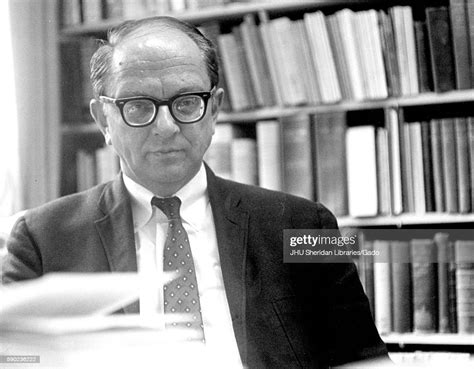A Quote by B. F. Skinner
The severest trial of oppression is the constant outrage which one suffers at the thought of the oppressor. What Jesus discovered was how to avoid the inner devastations. His technique was to practice the opposite emotion... a man may not get his freedom or possessions back, but he's less miserable. It's a difficult lesson.
Related Quotes
It is the obligation of every person who claims to oppose oppression to resist the oppressor by every means at his or her disposal. Not to engage in physical resistance, armed resistance to oppression, is to serve the interests of the oppressor; no more, no less. There are no exceptions to the rule, no easy out.
In this world, man has two significant possessions: intelligence and emotion. These two possessions govern our day-to-day life. But very often we see that emotion (ego) gets the upper hand in our life. We know that even if someone is extremely intelligent, when his emotion comes to the fore it will devour him. He is compelled to do what his emotion asks him to do.
There is such a thing as the freedom of exhaustion. Some people are so worn down by the yoke of oppression that they give up. [...] The oppressed must never allow the conscience of the oppressor to slumber. [...] To accept injustice or segregation passively is to say to the oppressor that his actions are morally right.
The whole purpose of spiritual direction is to penetrate beneath the surface of a man's life, to get behind the façade of conventional gestures and attitudes which he presents to the world, and to bring out his inner spiritual freedom, his inmost truth, which is what we call the likeness of Christ in his soul.
Across a chasm of eighteen hundred years, Jesus Christ makes a demand which is beyond all others difficult to satisfy; He asks for that which a philosopher may often seek in vain at the hands of his friends, or a father of his children, or a bride of her spouse, or a man of his brother. He asks for the human heart; He will have it entirely to Himself. He demands it unconditionally; and forthwith His demand is granted. Wonderful!
When I look at Jesus' warm and intimate friendships, my heart fills with praise that Jesus was. . . a man. A man of flesh-and-blood reality. His heart felt the sting of sympathy. His eyes glowed with tenderness. His arms embraced. His lips smiled. His hands touched. Jesus was male! Jesus invites us to relate to him as the Son of Man. And because he is fully man, we can relate to Jesus with affection and love.
I gave examples from my clinical practice of how love was not wholly a thought or feeling. I told of how that very evening there would be some man sitting at a bar in the local village, crying into his beer and sputtering to the bartender how much he loved his wife and children while at the same time he was wasting his family's money and depriving them of his attention. We recounted how this man was thinking love and feeling love--were they not real tears in his eyes?--but he was not in truth behaving with love.
Mary adored Jesus as the Bridegroom of souls. Union is the final purpose of love. Jesus by the gift of His substance in the Eucharist unites Himself with our souls as with His dear spouses. As a Bridegroom, He gives them all His possessions, His name, His heart, His whole Self, but on the condition that the soul reciprocates. The soul, His spouse, shall live for Him only
Jesus was probably a guy who thought, "This thing that I've discovered can save the world and everybody is miserable without it." So he was probably a very kind and giving person and thought he had to give it to people, even if it killed him. He had to make sure they got the message, and he paid the ultimate price as they say due to his insistence.
Every time man makes a new experiment he always learns more. He cannot learn less. He may learn that what he thought was true was not true. By the elimination of a false premise, his basic capital wealth which in his given lifetime is disembarrassed of further preoccupation with considerations of how to employ a worthless time-consuming hypothesis. Freeing his time for its more effective exploratory investment is to give man increased wealth.
The cruelest lies are often told in silence. A man may have sat in a room for hours and not opened his teeth, and yet come out of that room a disloyal friend or a vile calumniator. And how many loves have perished because, from pride, or spite, or diffidence, or that unmanly shame which withholds a man from daring to betray emotion, a lover, at the critical point of the relation, has but hung his head and held his tongue?
It is difficult for me to imagine what “personal liberty” is enjoyed by an unemployed hungry person. True freedom can only be where there is no exploitation and oppression of one person by another; where there is not unemployment, and where a person is not living in fear of losing his job, his home and his bread. Only in such a society personal and any other freedom can exist for real and not on paper.
The way in which a man accepts his fate and all the suffering it entails, the way in which he takes up his cross, gives him ample opportunity — even under the most difficult circumstances — to add a deeper meaning to his life. It may remain brave, dignified and unselfish. Or in the bitter fight for self preservation he may forget his human dignity and become no more than an animal




































